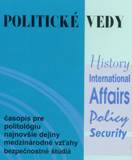Vzťahy Ruskej federácie a NATO po rozpade Sovietskeho zväzu
Relations of the Russian Federation and NATO after the Dissolution of the Soviet Union
Author(s): Martin HoremužSubject(s): Politics / Political Sciences
Published by: Univerzita Mateja Bela
Keywords: security policy; Russian Federation; NATO; security framework; Euro-Atlantic space
Summary/Abstract: The aim of this contribution is to introduce relations between Russia and NATO after the collapse of the Soviet Union. With the creation of an independent Russian state and the demise of the Warsaw Pact as a military-political organisation of the communist states it became necessary to define relations between NATO and Russia on a new, qualitatively higher level, so as it would reflect changes in the political and security map of the world that took place after 1991. The need for a new arrangement of mutual relations resulted also from the fact that Russia as the USSR successor state remained not only global, but particularly also regional security actor, which could not be possibly (or desirably) excluded from the processes in Euro-Atlantic security space. During the 1990s of the 20th Century relations between Russia and NATO were very significantly affected by issues related to NATO’s enlargement towards Central and Eastern Europe, to which Russia has voiced a strong disapproval. After 9/11, in the context of the global war against terrorism, a new perspective and dimension of mutual political and military relations has been opened. Its intensity, however, fluctuated due to the influence of number of various events (such as the war in Iraq in 2003 or the Russian-Georgian conflict in August 2008).
Journal: Politické vedy
- Issue Year: 14/2011
- Issue No: 4
- Page Range: 51-67
- Page Count: 16
- Language: English

